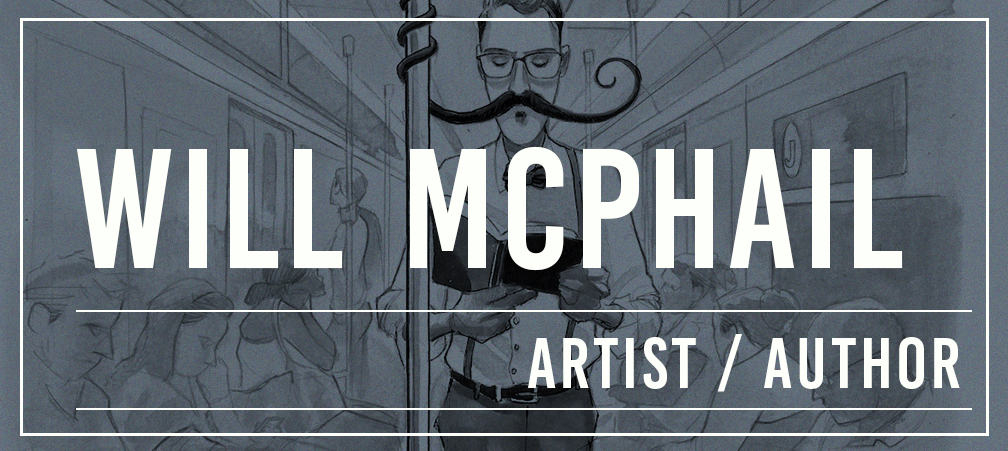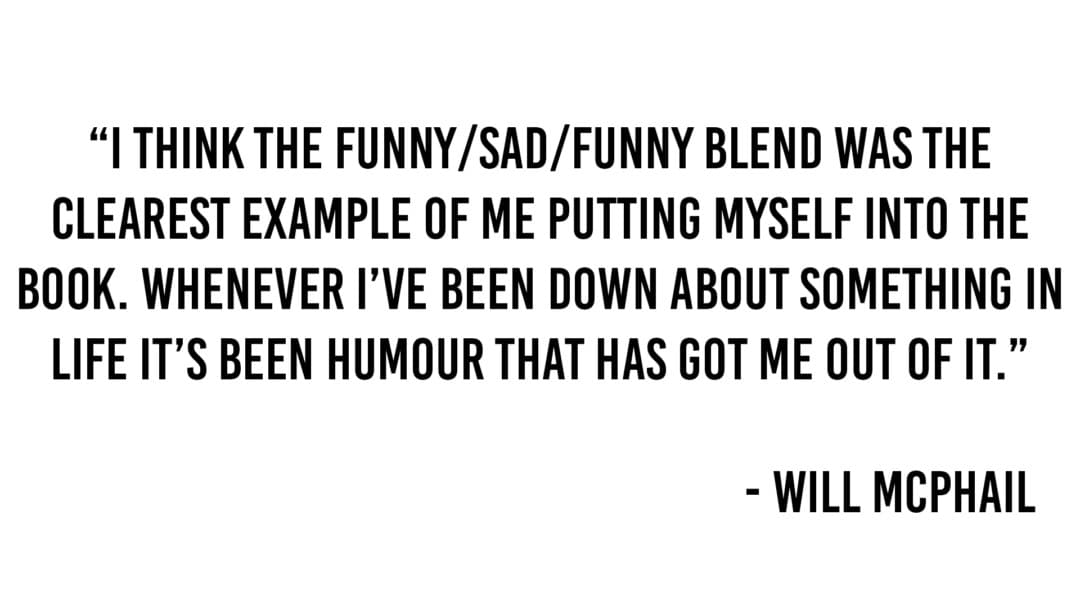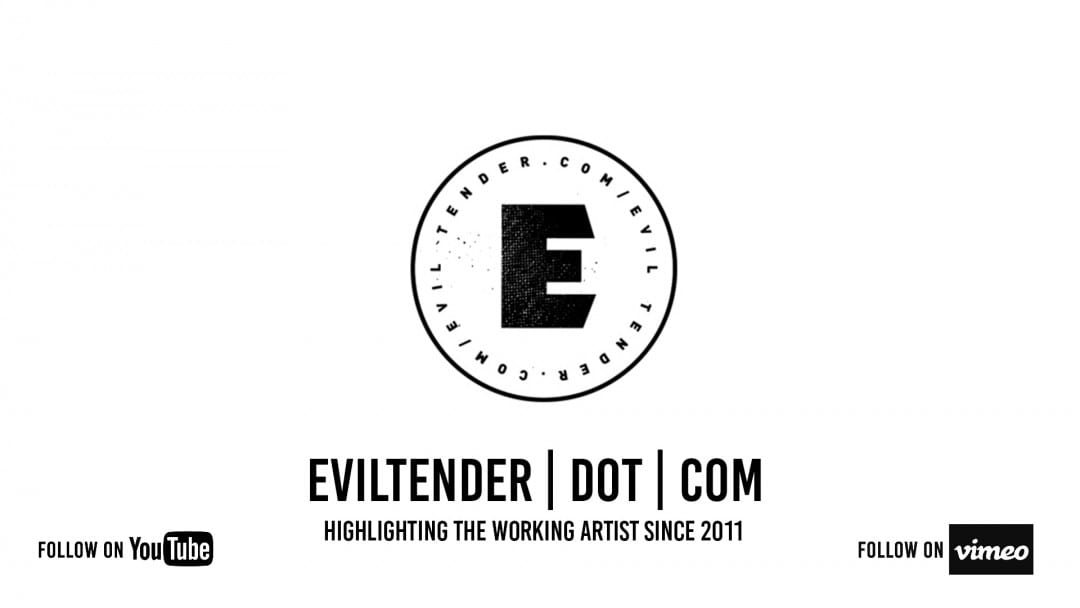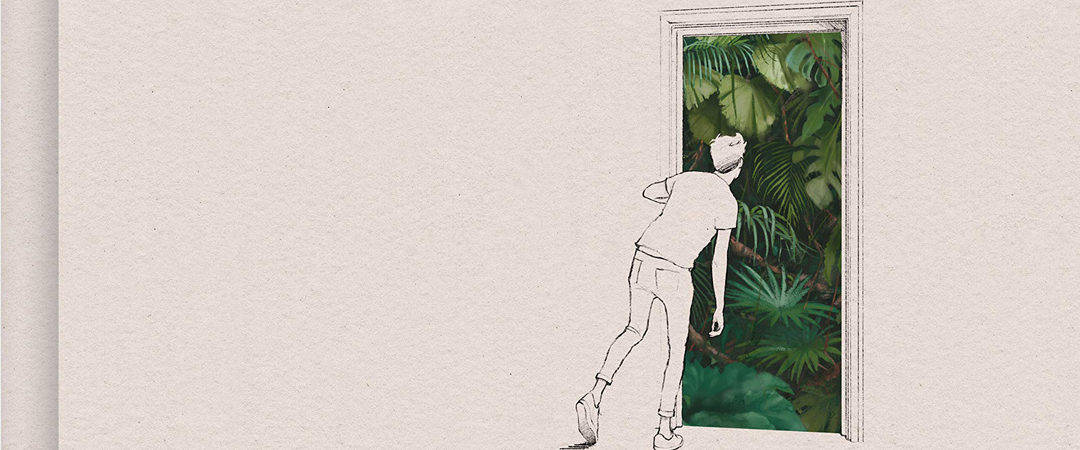
Comics creator Will McPhail draws with ease. His figures, weightless. Each face, drawn with a direct expression of McPhail’s narrative intent. His work for The New Yorker shows McPhail as a master of the single-panel comic, a richness of narrative and absurdist humor grounded in the minor events of the everyday.
McPhail’s debut graphic novel, IN, is a sublime and rich look at the life of an average man — he is modern in both instinct and culture. It is easy to relate to IN‘s protagonist Nick. He has followed all of the same cultural norms we all have and now, as an adult, he knows how to play the role of ‘Nick’ in the real world, but is unclear on how the version of himself, the one in his head, should exist.
Always a devout humorist, McPhail shows us how Nick’s jokes grow within, the false starts and attempts at connection, and how his internal monologue becomes his path of interaction with those around him. It’s a romantic comedy in panel form — bringing the pattern and pace of the modern rom-com to the graphic novel format. With IN, McPhail explores humor as a crutch, politeness as performance, and how, eventually, the power of sincerity can build relationships and lead us to a fulfilled life.
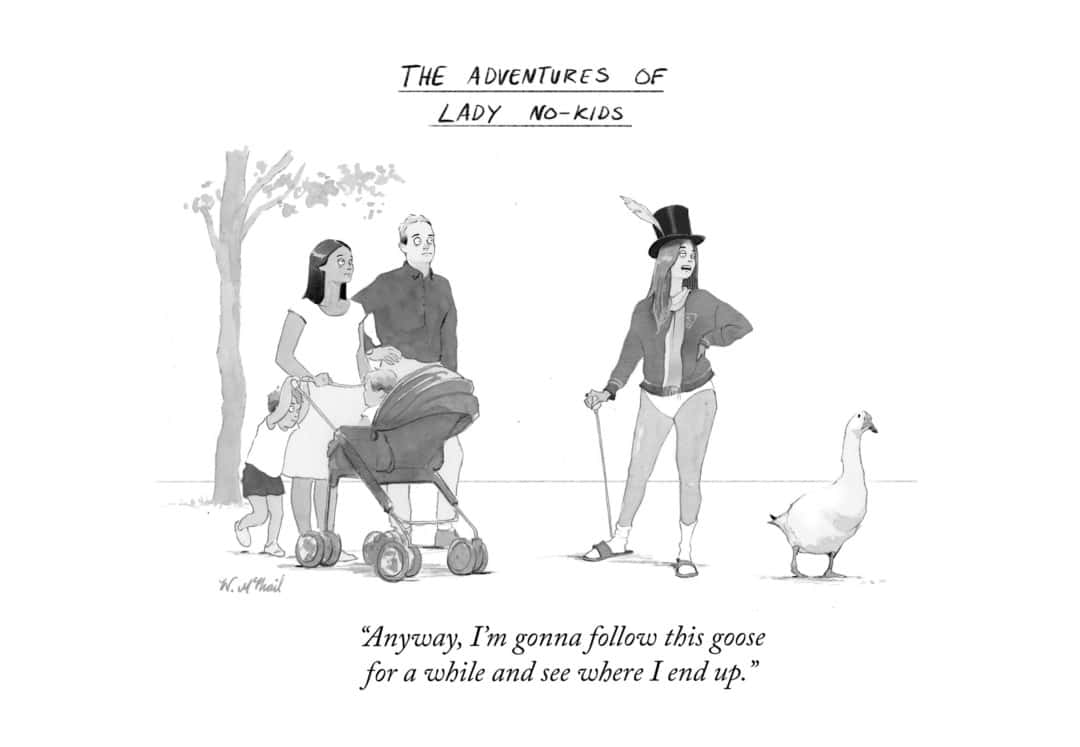
‘Lady No-Kids’ by Will McPhail
CJ: You can see the development of IN’s theme across comics like ‘When I was your age, things were hard for my dad when he was my age’ and ‘Lady No-Kids.’ Was Nick’s journey always the plan for your first graphic novel?
WM: Ah, that classic literary theme of following a goose! Tale as old as time.
No, I guess those areas of parenthood and how that affects identity have always been fascinating to me, so it’s no surprise they wormed their way into the book. I think I’m just trying to get all my musing out the way before I have kids so that when (and if) I do, I won’t mine their dribbly little heads for content.
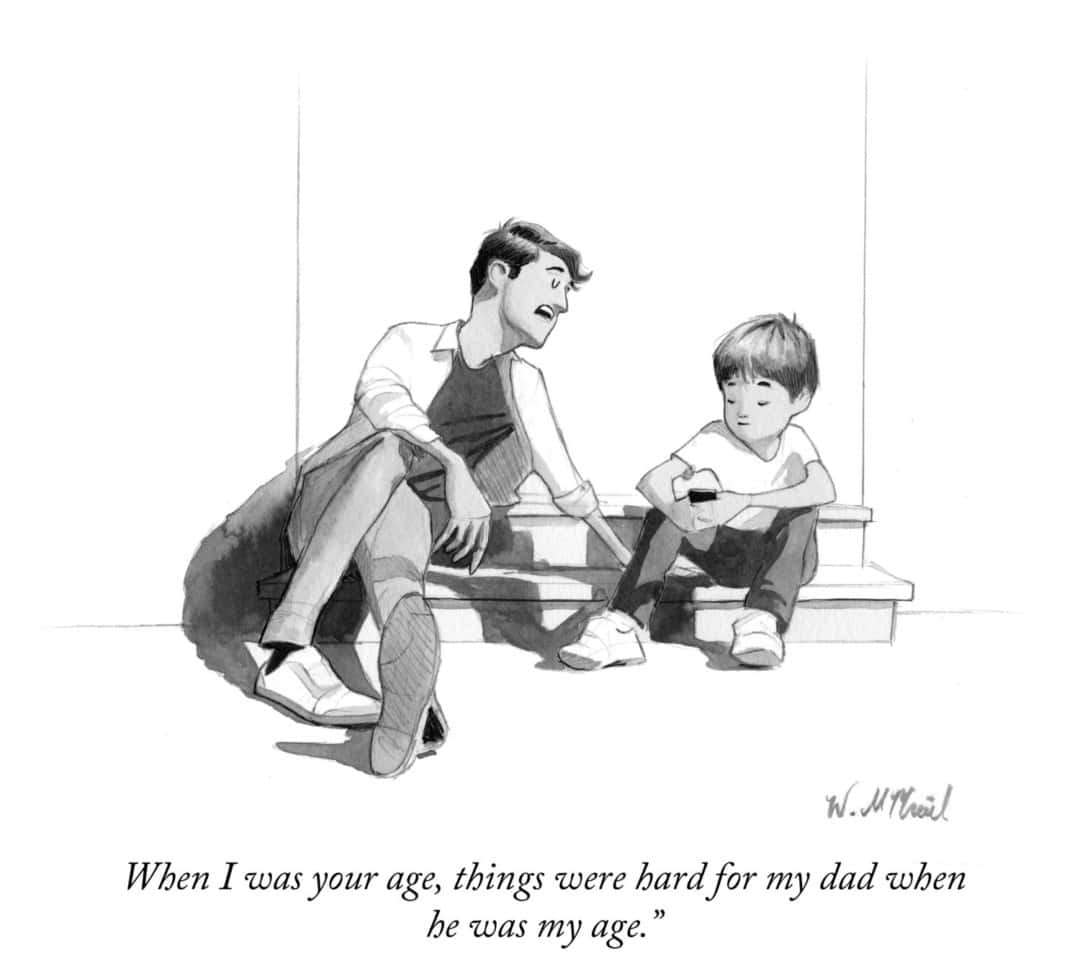
‘When I Was Your Age…’ by Will McPhail for The New Yorker
Were there any comics you’ve done over the years that you thought could have worked as a longer piece, or single panel comics best left at that?
What I really love about the single panel stuff is that you’re giving the reader just one little snapshot of this whole world that you’ve created. That’s good because a) more time for me to watch Love Island and b) it gives the reader license to fill in the gaps of that world themselves.
Occasionally one pops up that I feel could be expanded, Lady No Kids for example, but to be honest that one really isn’t my story to tell. I felt like I could just about get away with it as a silly single panel, but I can’t authentically write about women’s maternal life choices!

IN by Will McPhail (excerpt)
Humor is key to your comics, but with IN you didn’t make a straight comedy, but a book layered with character and family — delving into Nick’s all too real struggle to grow beyond himself. How did you approach the balance of drama and comedy?
You guys thought I was just a joker? Well, the joke’s on you, I’m sad! Take that.
I didn’t realise it was happening at the time because the process of writing it was just a blur of manic decisions, but I think the funny/sad/funny blend was the clearest example of me putting myself into the book. Whenever I’ve been down about something in life it’s been humour that has got me out of it. There has always been laughter directly on either side of the tears.
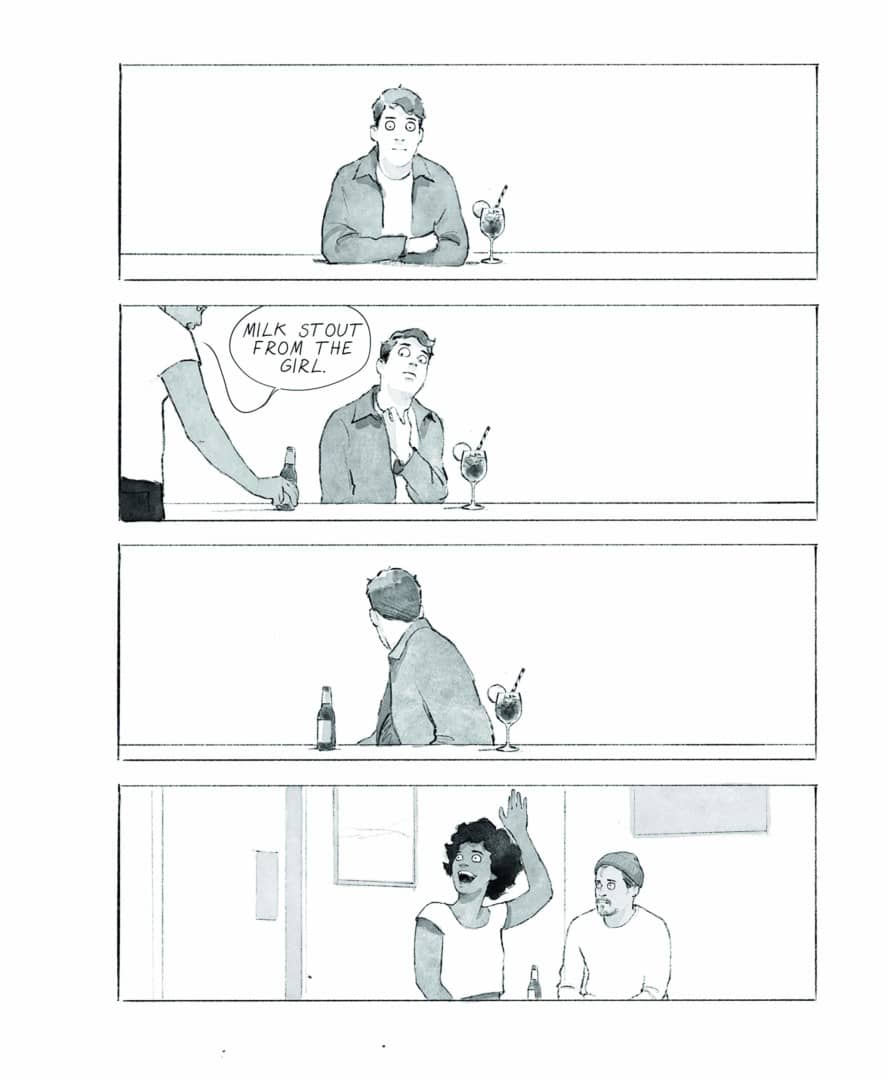
IN by Will McPhail (excerpt)
Your drawing style is big and expressive, not just in the eyes and face but each character speaks with their full body. You really give each moment the time it deserves – moments between characters pass beautifully through wordless pages. The pacing is quite cinematic. As the one handling the writing, inking, color, and type, what was the editing process like?
Pretty blissful! I really lucked out with my editors and a lot of how the book turned out is owed to how smart and patient they were with an idiot like me. As far as the actual process went, I would say a lot of the editing was done before the drawing. It’s an enormous amount of work to put a graphic novel on paper and so we wanted to get any major edits down before I had drawn an entire cathedral of penises, for example…
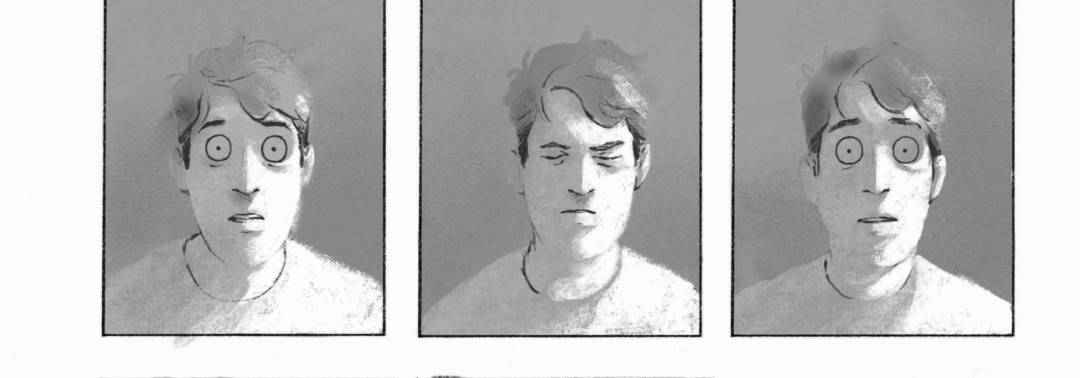
IN by Will McPhail (excerpt)
How much of Nick’s story is your own?
Mind your own beeswax. But also, here’s a bit of my beeswax: I’d had this idea about exploring the worlds within people and that very same moment realised that’s how I felt about the people that I’d lost in my life. I’d lost these whole worlds that I hadn’t taken the time to explore yet.
So, after I picked myself off the shower floor, I decided that I would let that lead the story because it was something I could write about authentically and worked well with the premise. So, I guess it was a case of allowing my real life experiences to inform the fiction as opposed to the other way round.
The book asks a very big question about the key element of human interaction – the value of social performance versus the value of honesty interaction. It makes me think of Emily Post’s Etiquette book, written in a time when people needed to be told not to spit indoors or kick mud in someone’s home. The nature of social performance made it so people could properly interact with each other using simple direction like, “ask them about their day” or “laugh at their joke even if it isn’t funny.” That process goes on long enough that through generations the purpose of the performance gets lost. You show the extreme of this during Nick’s call with his work, where each voice on the client end utters pointless office-speak. It makes you wonder how office life became so devoid of honesty and sincerity.
I’ve never worked in an office, so I have no idea how the dynamics have evolved. My only experience with that environment is being on the distant receiving end of those phone calls where every person is performing in some way for someone. I’m performing for them, collectively they’re performing for me, individually each of them is performing for the person of the next highest rank in their office. Eventually, the original purpose of the call gets completely forgotten and it descends into a bunch of people trying to impress each other and promising to “circle back.”
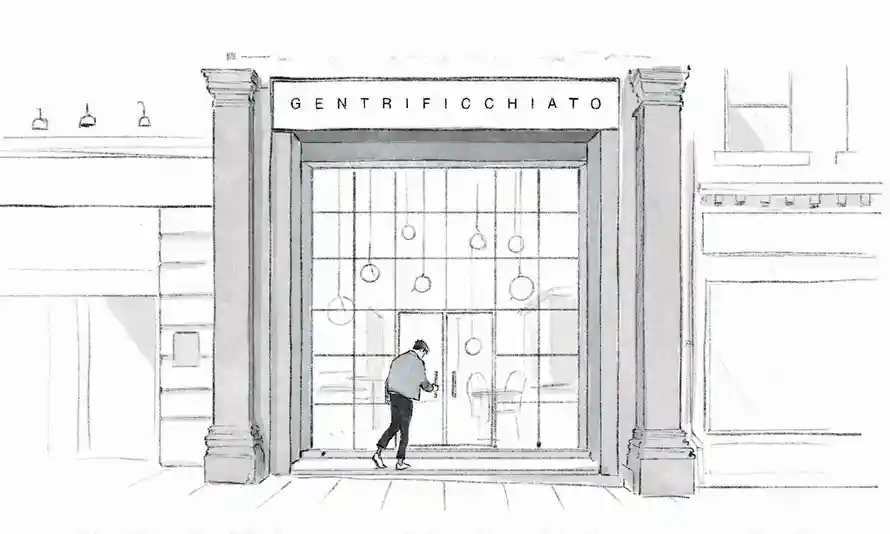
IN by Will McPhail (excerpt)
As a child, Nick is looking for an escape from performing and as an adult, he’s seeking out places to perform at – in Graham’s Bar he attempts the role of ‘sad man.’
Yes. In a lot of ways, the childhood Nick is on the right track, he feels the pressure of performance and wants to stop but can only achieve that by being alone. The following pages show just how far he has fallen from that point. He has become completely comfortable in that performance. I think his journey from then on is about learning how to stop performing without being alone.
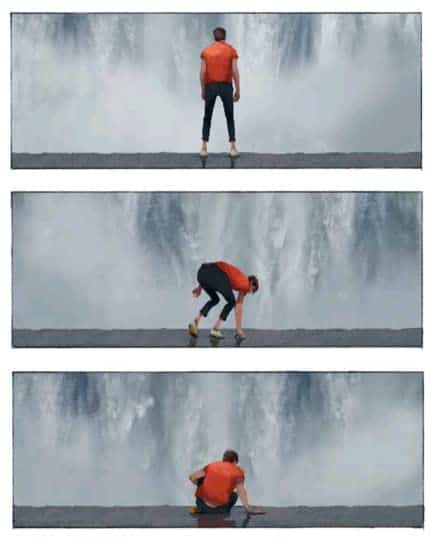
IN by Will McPhail (excerpt)
The inside moments, those pages that burst of color inside of Nick, each tell a different story. With his nephew, the boy’s honesty leads Nick to imagine a legion of sharp-toothed monsters that devour him. When his mother tells him, “I’m Hannah,” it leads to a dark passage where he watches a theatre of surgery, and at the helm is Wren. She’s the only doctor he knows. It’s a wonderful way of guiding the reader from the initial truth that Nick’s mother is her actual own person, to the return to his black and white world where he must accept what his mother had just revealed.
That scene was the entire reason why I spent so many hours practicing drawing my characters. It was absolutely essential that you recognise Wren. In any other medium you could just have the actor that plays Wren standing there or write “Wren is standing there,” but us illustrators have got to make someone look like that same someone every time just for the story to make sense!
In the final moment, Wren enters Nick’s head – his inner world. It’s an interesting moment, where the reader gets a glimpse that just maybe Wren was in the same place as Nick, looking to engage on a real level. In the end, it’s a win for them both.
Yeah, and not just Wren. Each character has their own mechanism for obscuring their true selves: Wren deflects real intimacy with humour, Nick’s is his tendency to observe rather than take part, Hannah has been defined by her motherhood. We all do it on some level and so it made sense to flip the script on Nick in the end. Additionally, I will say that I was also just sick of Nick and wanted more Wren.
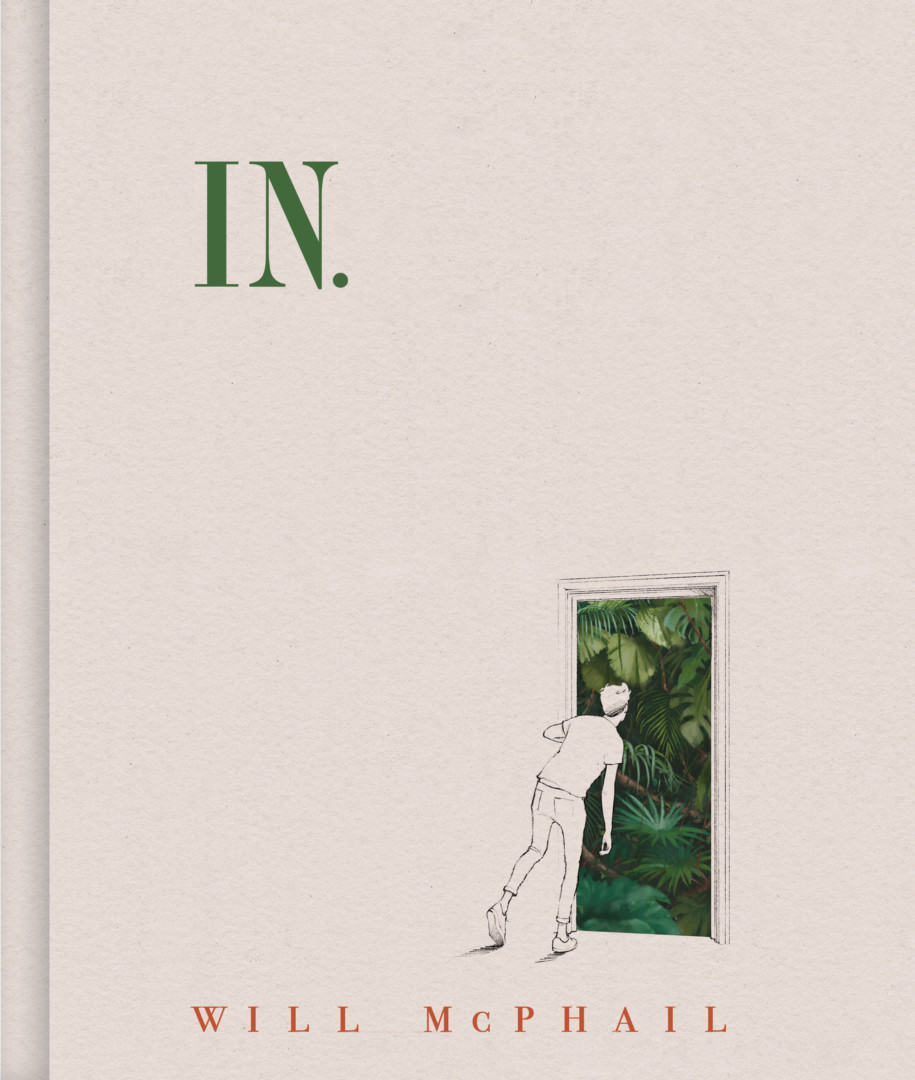
IN by Will McPhail
